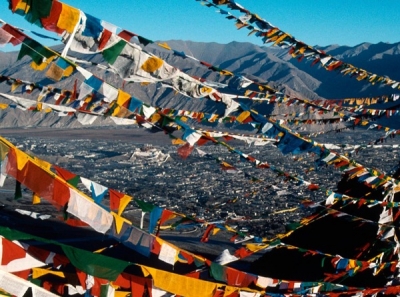New Delhi, Feb 3 (IANS) China has tightened restrictions on Tibetan residents of a county in Sichuan province that has been a hotbed of resistance to Chinese rule, imposing measures to prevent contact with people outside the area, according to a media report.
The communications clampdown in Drago county is the latest measure by Chinese authorities to bring locals to heel following the demolitions of huge Buddha statues in the area beginning 2021, as monks and local residents were forced to watch, sources in the region said, RFA reported.
“Beginning January this year, local Chinese authorities in Drago county have warned Tibetans living in the region to stop communicating with people outside Tibet,” said one of the sources who requested anonymity for safety concerns.
“Their cellphones are randomly probed and they are restricted from sharing any kind of information with the outside. They are also not allowed to contact their family members or send money,” the source said, RFA reported.
A report issued in January by ‘Free Tibet’ and its affiliated research arm ‘Tibet Watch’ said that Chinese authorities have ramped up repression of Tibetans, razing significant religious structures while committing serious human rights violations in Drago county.
The demolition of Tibetan Buddhist sites escalated under Drago county Communist Party chief Wang Dongsheng, who had earlier overseen a campaign for the expulsion of Buddhist clergy and destruction at Sichuan’s sprawling Larung Gar Buddhist Academy.
“Ever since Wang Dongsheng was appointed as county chief in Drago, the campaign against the Tibetans has gone from bad to worse,” said another Tibetan who declined to be identified for fear of his safety, RFA reported.
“There have been massive communication clampdowns along with other security measures which have been put into place,” he told RFA, adding, “Also, the staff and those with authority in the monasteries have been forced to attend re-education programs.”
Since 2008, Drago county residents have participated in acts of resistance against the Chinese government, prompting interventions by authorities, including significant crackdowns in 2009 and 2012.
Beijing views any sign of Tibetan disobedience as an act of separatism, threatening China’s national security.
–IANS
san/arm






